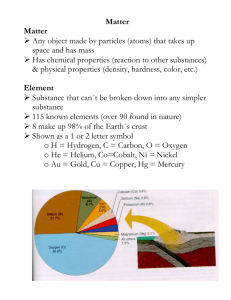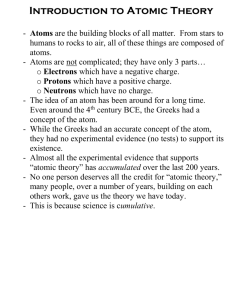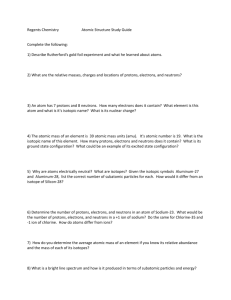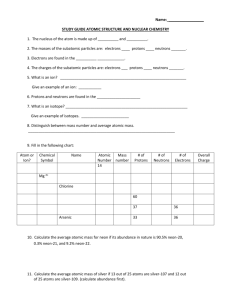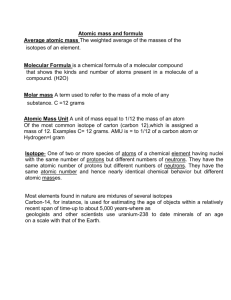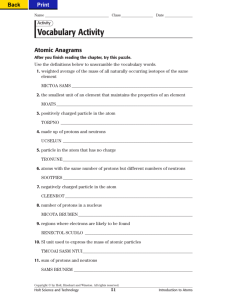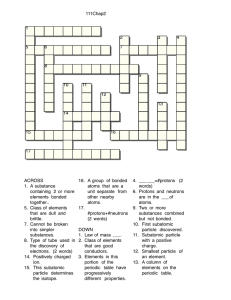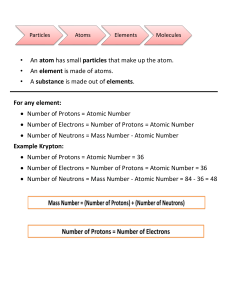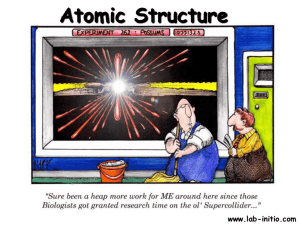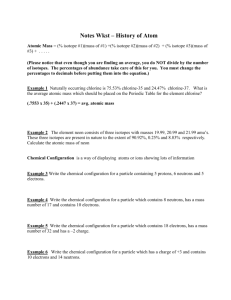Atomic Structure Worksheet: Isotopes & Ions
advertisement
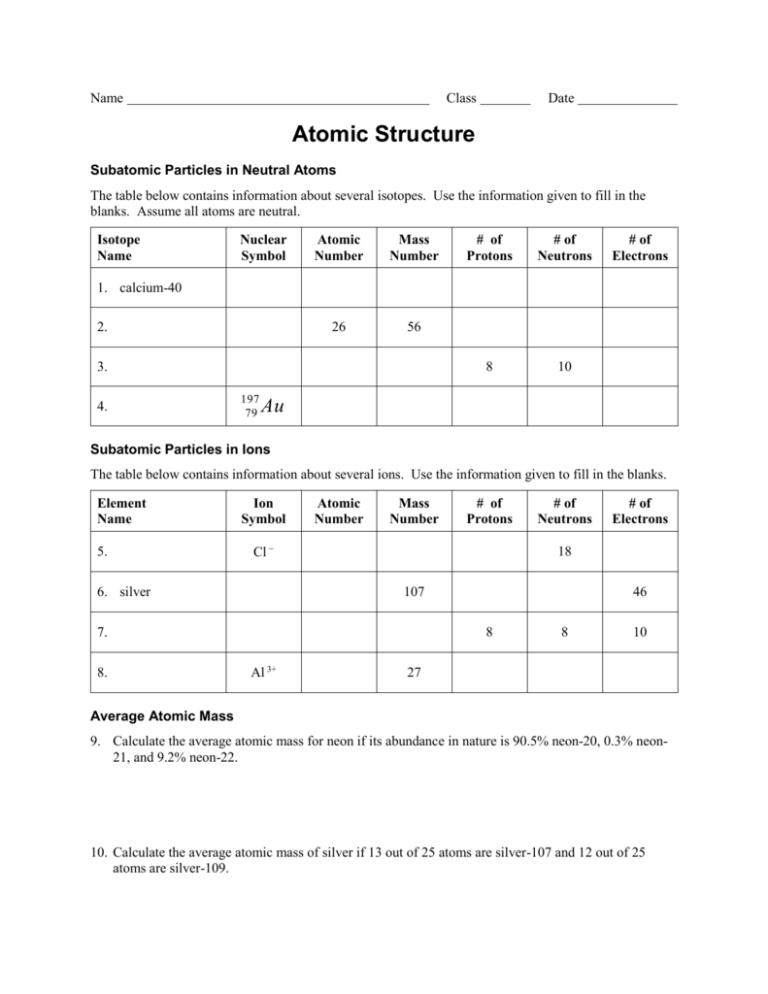
Name Class Date Atomic Structure Subatomic Particles in Neutral Atoms The table below contains information about several isotopes. Use the information given to fill in the blanks. Assume all atoms are neutral. Isotope Name Nuclear Symbol Atomic Number Mass Number 26 56 # of Protons # of Neutrons 8 10 # of Electrons 1. calcium-40 2. 3. 4. 197 79 Au Subatomic Particles in Ions The table below contains information about several ions. Use the information given to fill in the blanks. Element Name 5. Ion Symbol Atomic Number Mass Number Cl 6. silver # of Neutrons 107 46 8 Al 3+ # of Electrons 18 7. 8. # of Protons 8 10 27 Average Atomic Mass 9. Calculate the average atomic mass for neon if its abundance in nature is 90.5% neon-20, 0.3% neon21, and 9.2% neon-22. 10. Calculate the average atomic mass of silver if 13 out of 25 atoms are silver-107 and 12 out of 25 atoms are silver-109. Reviewing Concepts 11. The mass of an atom is contained mainly in its ____________ and ____________. 12. The identity of an element is determined by its number of ____________. 13. Isotopes are atoms with the same number of ____________ and different number of ____________. 14. The charge of an atom or ion is determined by its number of ____________. 15. _____ Particle X contains 9 protons, 10 neutrons, and 9 electrons. Particle Y contains 9 protons, 10 neutrons, and 10 electrons. What is the relationship between particles X and Y? A. Particles X and Y are isotopes of the same element. B. Particle X is an atom, and particle Y is an ion of the same element. C. Particle X and Y are atoms of different elements. D. There is no significant difference between particles X and Y. 16. Briefly explain your answers to question 15.

